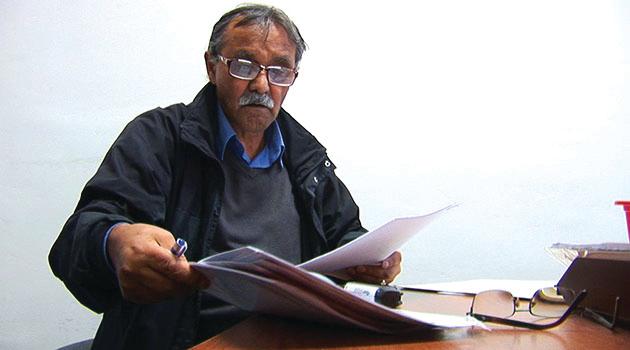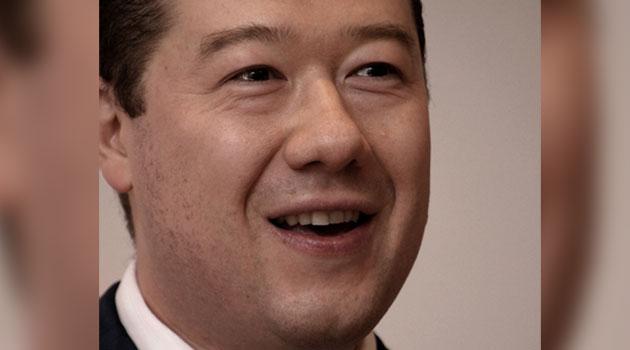Czech Roma Holocaust victims and their relatives file criminal charges against MP

The chair of the Committee for the Redress of the Roma Holocaust (Výbor pro odškodnění romského holocaustu – VPORH), Mr Čeněk Růžička, the ROMEA, o.p.s. organization, Mr Miroslav Kováč of the Equal Opportunities Party and Mr Michal Miko of the Slovo 21 association filed criminal charges against Czech MP Tomio Okamura on 2 September for the statements he made on the eve of the Roma Holocaust Remembrance Day doubting the existence of the so-called "gypsy camp" at Lety by Písek and downplaying the deaths of the hundreds imprisoned there, including children. The charges were filed by Mr Kováč and Mr Růžička in person at the District State Prosecutor for Prague 5 and included extensive appendices documenting the merits of their submission and the publicly available historical information that Okamura either ignored or even lied about in his public statement.
"To doubt the Holocaust suffering of anyone – Jews, Roma – is a crime in our country, thank God. We handed over evidentiary materials to the police that cannot be challenged, materials… such as a copy of the decree on the registration of ‘gypsies and gypsy half-breeds’ that was the basis for Romani families, including children, being dragged away to that camp," Mr Růžička told news server Romea.cz.
Lawyer Klára Kalibová, director of the In IUSTITIA organization, has also expressed her opinion of the case. "In practice, the criminal justice authorities are capable of clarifying Holocaust denial, especially as it pertains to Jews, but they may not know what to do with such charges as they pertain to Roma. However, the claim that gas was not used to murder anyone at Auschwitz and the claim that Lety was not a concentration (extermination) camp are of the same relevance with respect to criminal law, as the aim of such claims is to doubt the mechanism of the planned annihilation of the Jews and Roma," she said.
In an interview for the political tabloid Parlamentní listy, Okamura purposefully concealed and misrepresented historically documented information about the so-called "gypsy camp" by misrepresenting it as a place that was just a labor camp during its entire existence, serving for the correction of "work-shy" persons. Okamura directly commented that any other description of Lety is a "false myth".
The MP did so even though the generally available literature and scholarship documents that the camp at Lety was part of an effort by those sympathizing with the Nazi ideology to annihilate allegedly racially inferior persons. The criminal charges state that "the camp, therefore, in the next phase of its existence, served as a place where the above-described persons were to be concentrated until their fates were decided (i.e., how they were to be destroyed)."
Mr Růžička, speaking on behalf of the victims of the Romani Holocaust and their relatives, responded to Okamura’s remarks about the nature of the camp at Lety by asking: "Children and infants were imprisoned in that camp. Does Mr Okamura believe they were also supposed to learn how to work there?"
Between 1940 and 1942, when the camp actually did function as a re-education/work camp, Romani people comprised only a small percentage of those imprisoned there. From 1942, the labor camp became an interment camp and then a so-called "gypsy" camp, in which entire Romani families, including young children and elderly or unwell persons incapable of performing any labor, were imprisoned.
Each of Mr Růžička’s parents, who did not meet one another until after the war, spent time in several concentration camps. Almost all of the members of their extended families – a total of approximately 25 people – perished in them.
"That included my mother’s first son, my half-brother. Mom was the only one left, she was the only one spared, which was an enormous trauma that she bore like a heavy cross until her death," Mr Růžička recalls.
His mother returned from the concentration camp with tuberculosis. Her first husband had been arrested for collaborating with a resistance group.
"The Nazis took him away and it was as if the earth had swallowed him up. It wasn’t until after the war that it came out that they had taken him first to the concentration camp at Auschwitz, then to Buchenwald, and then to another camp, where he perished," Mr Růžička said.
The entire extended family on Mr Růžička’s father’s side was also sent to the concentration camps. Only four men survived, including Mr Růžička’s father and uncle.
Klára Kalibová, director of In IUSTITIA. says that in cases of denying the Romani Holocaust, the question of what the nature of the camp at Lety was is not essential. The conditions for criminality are, on the one hand, what the Holocaust denier’s intentions are, and on the other hand what the behavior is.
What must be proven, Kalibová says, is the intention to commit behavior that rises to the level of a felony. Such behavior might be not only direct denial, but also casting doubt on the Holocaust, approving of it, or justifying the mass murder of people of Jewish or Romani nationality during WWII.
The key question that police and the state prosecutor must answer, according to Kalibová, is the criminal liability of Mr Okamura, as he is an elected official. In the past, similar remarks have been made by other elected officials in the Czech Republic without incurring any obvious legal consequences.
